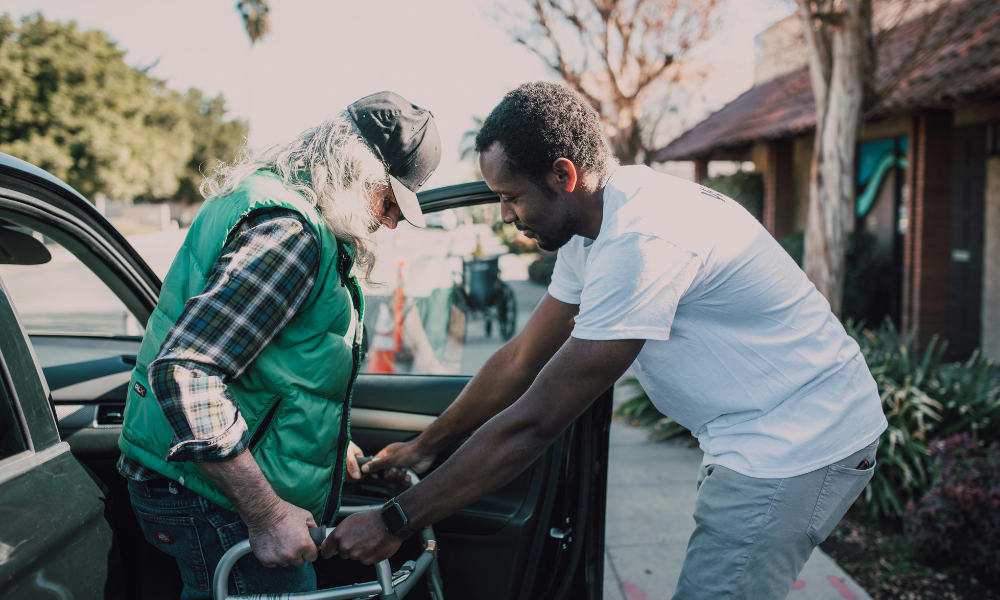April is National Volunteer Month, dedicated to acknowledging and appreciating the work volunteers do year-round to provide support to their communities. Currently, 60.7 million Americans volunteer with an organization, a number that has continued to increase since the pandemic. Volunteers are the heart of our communities, and their work should not go unnoticed. Aside from the benefit of volunteers’ work to their communities, there are a variety of personal and professional benefits one experiences when they engage in volunteerism. Here are five benefits to volunteering to aid you in deciding your next steps.
- Volunteering improves your physical and mental health.
According to the Mayo Clinic Health System, research has shown that volunteering can have a stress-reducing effect on the body. This reduced stress decreases the risk of both physical and mental problems, such as heart disease, stroke, depression, anxiety, and general illness. Research even suggests that volunteering can make you live longer! Who would have thought that volunteers, the heart of our community, could also be improving their health?
- Volunteering connects you with others.
When you are volunteering, you are almost always working with others. Whether these individuals are strangers, co-workers, friends, family, or your community, volunteering connects you to others. This connection can provide you with new friends, a larger social network, and better communication skills. It can also help lower feelings of isolation or loneliness that you may be struggling with.
- Volunteering can advance your career.
According to Western Connecticut State University, volunteering has been shown to create improvements in your professional life. If you are interested in a new career path, volunteering in that field can provide you with experience and the opportunity to network with experienced professionals. If you are interested in a promotion or advancement in your current career, volunteering demonstrates that you are a well-rounded individual, that you have skills of teamwork, collaboration, and empathy, and that you are well connected to your community.
- Volunteering teaches you new skills.
While many people may feel it is too late to learn new skills, volunteering can prove them wrong. Volunteers can be taught a variety of skills they have never learned before, such as hard skills like woodworking or carpentry and soft skills like empathy and active listening.
- Volunteering provides personal fulfillment.
Lastly, and most importantly, volunteering provides personal meaning and fulfillment. Being able to dedicate your time and resources to serving others is a noble task, and volunteers are completely justified to feel a sense of satisfaction and joy afterward.
Volunteerism has copious benefits for mental, physical, and social health. Volunteers are not only the heart of their communities but also the heart of VOYCE. If you are interested in volunteering at VOYCE, click the link here to learn about our various volunteer positions and ways in which you can experience all the benefits that come from volunteering.
Written by VOYCE Practicum Student and Student at Saint Louis University School of Social Work, Chloe Amstutz with editing by VOYCE Event Coordinator, Shelby Collier
Resources
https://www.pexels.com/photo/man-assisting-person-with-walker-6647037/
https://www.census.gov/newsroom/stories/volunteer-week.html

